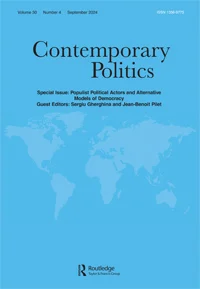This special issue contributes to the bourgeoning literature that connects political parties and deliberative practices. It answers two related research questions: why do parties engage in deliberation? and what are the ways in which the deliberative practices can address the challenges faced by political parties in responding to a changing internal and external environment? Its articles cover both theoretical concepts and practical aspects that emerged in different political settings. The results illustrate how different forms of deliberation can contribute to reshaping parties as instruments to represent the people by allowing them to express their demands in a non-mediated form. As such, deliberation in party politics—within and outside party organization—can positively contribute to citizens’ attitudes towards politics and to democratic life.





